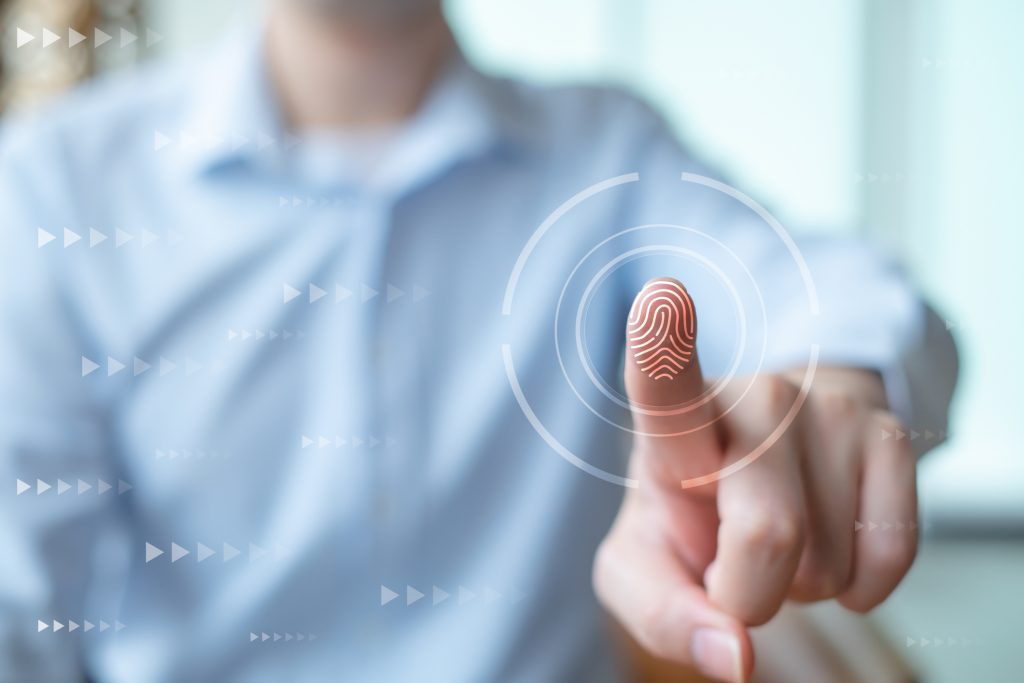Articles

5 exciting business events in Barcelona this May
16 de April de 2024

It’s an ordinary morning, except there’s quite a stir at ‘La Maquinista’ shopping center in the north of Barcelona. Dozens of curious bystanders gather around a small stand, barely two square meters in size, where visitors are getting their eyes scanned.
Amid the crowd, a mother asks her daughter if she knows what’s happening. A nearby spectator chimes in, “They’re giving away cryptocurrencies in exchange for your iris.” Concerned, the mother quickly moves away from the crowd with her daughter.
This isn’t a scene from Black Mirror; it’s the newest trend that’s capturing the attention of young people in Spain. The driving force behind it is a company called Worldcoin. Their proposition? People hand over their biometric data, confirming that they are indeed human, in exchange for “a universal basic income funded by AI.” While Spain has already halted Worldcoin from scanning more irises, lingering questions persist about the information they’ve already amassed. Is this data truly as crucial as claimed? And what are their real intentions behind collecting it?
Worldcoin, one of Sam Altman’s (director of OpenAI, creators of Chat GPT) ventures, has recently gained increased attention due to their new initiative: offering money in exchange for iris scans. How does it work? Worldcoin scans the biometric data of the eye and then compensates individuals with cryptocurrency, the amount received varies depending on its current value. Each person can earn anywhere from 30 to 200 euros. It sounds like quick and easy money, but is it as straightforward as it seems?
So far, the success of this marketing strategy is undeniable. Since Worldcoin was launched on July 24th in 10 different countries, over 3.5 million people have acquired tokens of this currency. However, many ask the same question: What does Worldcoin gain from our iris?
Company employees claim it’s a promotional strategy for the cryptocurrency. They assert that they retain your data to verify your identity and prevent duplicate registrations.
However, when someone signs up, they also agree to a clause allowing their information to be shared with third parties. While Worldcoin claims this data is “secure,” that doesn’t guarantee protection against cyberattacks that could potentially compromise all of this information.
Unlike data such as phone numbers, credit cards, or passwords, biometric data is unchangeable. While you can change your phone or password, you can’t change your biometric data. Biometric data includes traits that can be used to identify you, such as your voice, fingerprint, or iris. They are inherently yours, non-transferable, and unchangeable.
Since the start of this initiative, the Spanish Data Protection Agency has investigated several complaints. Along with other organizations, it has issued a statement warning that this action “involves the sharing of highly sensitive personal data.” It explains that it’s “biometric data that enables the unequivocal identification of individuals through a physical characteristic that remains constant throughout life.”

That’s why, after carefully studying the legality of this practice, it has banned these operations and is removing the stands and iris scanners used by Worldcoin. In countries like France or Brazil, Worldcoin has also faced bans on conducting their activities, while claiming they’re leaving voluntarily rather than because it’s illegal.
Similar to Meta or Google, the data market operates on supply and demand. Once the information is gathered, if you’ve given permission for your data to be sold —often without realizing it— third-party companies can gain access to it. What’s particularly worrisome is that the original company you entrusted with your data profits from selling it.
Another concern is privacy threats. Sharing biometric data could expose individuals to risks of tracking and surveillance, potentially enabling identification without consent through various technologies.
In the 1970s, a phrase that sums up today’s privacy concerns gained popularity: “If something is free, you are the product.” This exchange of biometric data for cryptocurrencies raises significant ethical questions.
One ethical concern raised by this practice is that many people, driven by economic needs or enticed by the promise of easy money, may not make well-informed decisions and might be unaware of the potential consequences it entails.
Most individuals who have undergone this experiment are most likely not well-versed in cryptocurrencies and the implications of sharing their biometric data in an “eye for an eye, iris for crypto” exchange.
As technology progresses, it’s crucial that the safeguarding of our data keeps up. Ultimately, it’s not just about money; it’s about our identity. The challenge lies in balancing embracing new technologies and safeguarding our privacy. This equilibrium will determine what truly belongs to us in the digital realm in the future.
